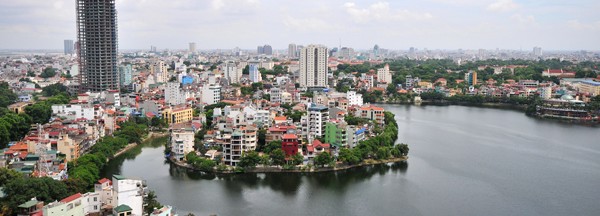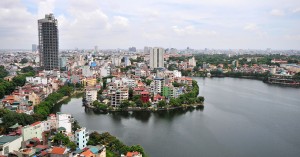While Vietnam’s real estate market seems to be going down, it’s also actually attracting foreign investors at the same time, triggering a strong trend of Buying & Selling and Mergers & Acquisitions (M & A) in the particular sector in the future.
From January to August of 2013, Vietnam reeled in more than US$12.63 billion of Foreign Direct Investment (FDI) which is equivalent to a 19.5% increase compared to 2012. There was a 12.2% increase in Total Registered Capital equalling to over US$7.4 billion or 768 newly-licensed FDI projects out of the total projects. Morever, there were 297 projects subjected to funding which were expected to increase to 31.7% increase or over US$5.22 billion. This data was based on the records accumulated by the Ministry of Planning and Investment.
47 countries trusted Vietnam with their investment in 2013, and Japan was the biggest investor, followed by Singapore and then Russia, with a total new and registered capital of US$4.35 billion, US$3.78 billion, and US$1.01 billion, respectively. These are equivalent to an increase in Total Registered Capital of 34.5%, 29.9%, and 8.1%, respectively. Japan and South Korea are interested in Vietnam market both for medium and long-term investment plans. In particular, both countries are in the hunt for assets and development opportunities in the urban area. Taiwan is also eyeing Vietnam in the same sector, specifically in three-star hotels. Many other big investors are seeing Vietnam as a good investment ground in the real estate sector.
Real estate in Vietnam ranked 2nd in the FDI which has 18 sectors tied to it. This is equal to US$588.11 billion of Total Newly and Extended Registered Capital or 4.7% of the Total Registered Capital. A total of 400 projects were credited for the particular sector with a Total Registered Investment Capital of US$48.23 billion. Processing and Manufacturing industries tops the list. But categories like hotels, resorts and industrial parks are also drawing in foreign businesses who are planning to either rent, produce or invest. There is a group demand for the real estate sector which means that the investors who come into Vietnam really own office buildings for the company’s transactions and business handlings.
The recovery of Vietnam’s economy is seen as the major factor for attracting foreign investors into its real estate market sector. The country’s GDP grew by 5%, inflation decreased, interest rates went down between 6-7% in 2013, which resulted in an increase in remittances, particularly in HCM with a 3% higher rate last year, totalling to an estimated US$1.9 billion. Business-supporting policies of the Vietnam government, 50% VAT discount, and housing problem solution are the other factors leading to a “warm” market for Vietnam’s real estate. Vietnam’s real estate market also has some edge compared to the other real estate markets in the region. In particular, the commercial sector of Hanoi and Ho Chi Minh City is starting to recover while that of the rest of the world is still suffering.
Vietnam is also a developing country with a majority of young population and high population density. Moreover, it has a stable political system which accounts for a significant part for attracting foreign investors. But all in all, investment opportunities especially in the real estate sector of the country abound, which explains why despite the overall downward trend in the market, foreign investment in Vietnam continues to prosper.

